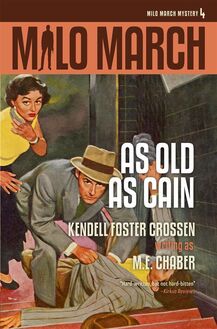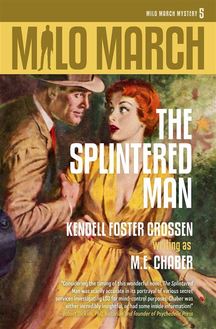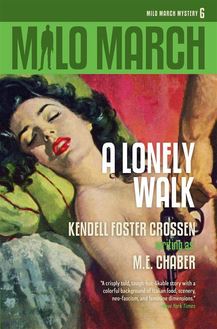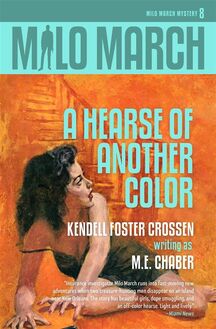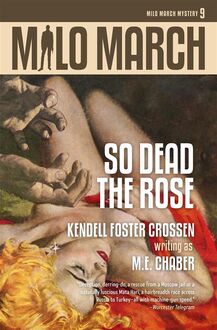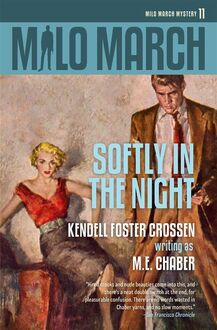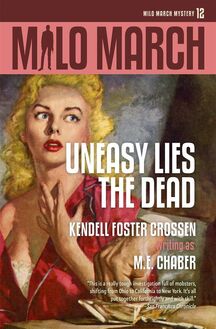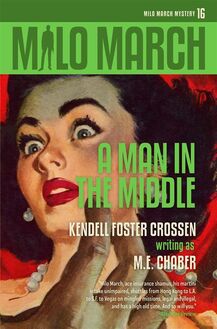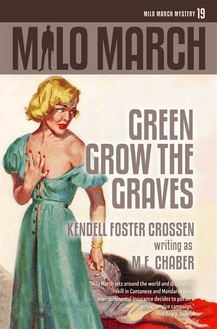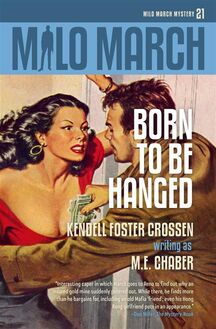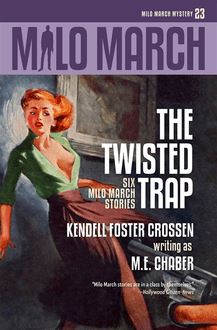-
 Univers
Univers
-
 Ebooks
Ebooks
-
 Livres audio
Livres audio
-
 Presse
Presse
-
 Podcasts
Podcasts
-
 BD
BD
-
 Documents
Documents
-
- Cours
- Révisions
- Ressources pédagogiques
- Sciences de l’éducation
- Manuels scolaires
- Langues
- Travaux de classe
- Annales de BEP
- Etudes supérieures
- Maternelle et primaire
- Fiches de lecture
- Orientation scolaire
- Méthodologie
- Corrigés de devoir
- Annales d’examens et concours
- Annales du bac
- Annales du brevet
- Rapports de stage
La lecture à portée de main
Vous pourrez modifier la taille du texte de cet ouvrage
Découvre YouScribe en t'inscrivant gratuitement
Je m'inscrisDécouvre YouScribe en t'inscrivant gratuitement
Je m'inscrisEn savoir plus
Vous pourrez modifier la taille du texte de cet ouvrage
En savoir plus

Description
Sujets
Informations
| Publié par | Steeger Books |
| Date de parution | 26 septembre 2020 |
| Nombre de lectures | 0 |
| EAN13 | 9791220200288 |
| Langue | English |
Informations légales : prix de location à la page 0,0012€. Cette information est donnée uniquement à titre indicatif conformément à la législation en vigueur.
Extrait
Softly in the Night
by
Kendell Foster Crossen
Writing as M.E. Chaber
Steeger Books / 2020
Copyright Information
Published by Steeger Books
Visit steegerbooks.com for more books like this.
©2020 by Kendra Crossen Burroughs
The unabridged novel has been lightly copyedited by Kendra Crossen Burroughs.
All rights reserved. No part of this book may be reproduced or utilized in any form or by any means, electronic or mechanical, without permission in writing from the publisher. The scanning, uploading, and distribution of this book via the Internet or via any other means without the permission of the publisher is illegal and punishable by law.
Publishing History
Hardcover
New York: Holt, Rinehart & Winston (A Rinehart Suspense Novel), February 1963. Dust jacket by Ben Feder, Inc.
Toronto: Holt, Rinehart & Winston of Canada, 1963.
London: T.V. Boardman (American Bloodhound Mystery #433), 1963. Dust jacket by Denis McLoughlin.
Paperback
New York: Paperback Library (63-288), A Milo March Mystery, #6, March 1970. Cover by Robert McGinnis.
Dedication
For Lisa, who shares everything that belongs to me except my heart; that she has completely.
One
I read about it in the newspaper without realizing it was any more to me than just another story. I was in my office on Madison Avenue one Tuesday morning, reading the New York Times. I didn’t have any work at the moment, so I was reading it from cover to cover. The item was on one of the back pages. A large beach house had burned in Santa Monica, California, on Sunday night. The firemen had managed to keep the fire from spreading, but the house had been completely destroyed. When the embers were searched later, two bodies were found. It was believed that the bodies were those of a Richard Cantwell and his wife. Cantwell was a wealthy Los Angeles businessman who owned the house that had burned. That was all.
As I turned to the sports page, the phone rang. I picked up the receiver and said hello.
“Milo, boy, how are you?” It was Martin Raymond, a vice-president of Intercontinental Insurance.
“All right, I guess,” I said. “I haven’t checked recently.”
“Feel like running up here?” he asked. “I think I might have a little something for you.”
“Sure,” I said. “I’ll be right there.” I hung up and folded the newspaper. The sports would have to wait. This probably meant a job, and I could use one.
I’m Milo March. March’s Insurance Service Corporation. I’m the whole corporation. I’m an insurance investigator.
I walked up Madison Avenue to the Intercontinental Building. Raymond’s office was on the executive floor where they really let themselves go on furnishings, from carpeting with ankle-deep nap to receptionists with wrist-deep measurements. The redhead at the desk was a good example. I admired her while she found out that it was all right for me to go into the inner sanctum. I took a last, loving look and waded back to Raymond’s private office. He was waiting for me.
“Milo, boy,” he said. Everybody was a boy to him. “Glad you could make it.”
“It was a little rough on the back slope,” I said, “but the dogs mushed on through.”
He gave an executive-type laugh. “That’s my boy, always pushing the old laugh meter. Feel like taking on a little job?”
“That depends on how little,” I said. “If it’s less than a day I don’t think I can spare the time.”
“It’ll be several days,” he said. “A suspected arson case out in California. Santa Monica.”
I remembered the morning newspaper. “It wouldn’t be the Cantwell fire, would it?”
He looked surprised. “You know about the case?”
“Only what I read in the paper this morning. A beach house burned down in Santa Monica and there were two bodies found in the ruins. Believed to be the remains of Mr. and Mrs. Cantwell. Is that the case?”
He nodded. “That’s it.”
“The newspaper didn’t say anything about arson.”
“It wouldn’t,” he said. “In fact, we’re the only ones who think it was arson. The local police and fire departments have already stated that the fire was of unknown origin. The newspaper probably got its story from them.”
“ ‘Everybody’s queer but me and thee,’ ” I quoted. “How did you arrive at the conclusion that everyone is wrong except the company that has to pay for the fire?”
“Listen,” he said, “Richard Cantwell had that house insured for three hundred thousand dollars. He owned another house in Beverly Hills, which we insured for three hundred and fifty thousand dollars. We carry all of the insurance on his business—insurance on the building in Los Angeles, embezzlement and theft insurance, accident insurance on his employees.”
“That hardly seems reason enough to think that the man had his own house set on fire.”
“That’s not all,” he said dryly. “We also carried life insurance on Richard Cantwell and on his wife. Two hundred and fifty thousand on each. Double indemnity. Which means a half million on each if the death is accidental. So if that was Cantwell and his wife in the fire, we owe one million three hundred thousand dollars—to start with.”
“What does that mean?” I asked.
“Three weeks ago,” he said, “we received an anonymous letter accusing Richard Cantwell of embezzling from his own company. The writer of the letter thought that we would be interested, since we had the company insured. We didn’t pay too much attention to the letter at the time, because it wasn’t signed. We did turn it over to our Los Angeles office. They made a quick check and said there was no evidence of anything wrong in Cantwell’s company. So we dropped it.”
“Now you want to pick it up again?”
“It might be worth looking into,” he said. “We don’t like the looks of it, Milo. There are too many coincidences and I don’t believe in them. He has embezzlement insurance and somebody says he’s dipping into the cash. He has insurance on a beach house and it burns down. He has insurance on himself and his wife—paying double in case of accident—and then we are told that he and his wife died in the fire.”
“Who collects?”
“That’s what we’re going to pay you to find out,” he said. “I can think of several possibilities. Maybe somebody was helping him dip into the company cash; maybe somebody had an eye on those two insurance policies for some time. It might even have been Cantwell himself.”
“You have a nasty mind,” I said.
“It’s been known to happen.”
“True,” I admitted. “I’ve worked on some like that. Do you have anything else that points to arson?”
“Not really, but there is something else that I think might fit. We make a practice of keeping track of most of the professional arsonists. There is one man here in New York we believe to be working on a large scale. We believe that he and his organization are responsible for more than a hundred fires in the Greater New York Area in the past year. And we feel sure that he doesn’t confine his work to this area. But we haven’t been able to pin anything on him yet.”
“Why not?” I interjected.
“Too big and too good an organization. It’s like asking why the cops don’t clean up all the bookies or policy men. We’ve managed to catch several of his men and send them to prison, but none of them has talked, and there has been no way to tie them into the ring. Yet we’re positive that it’s operating, and we think it may be active in more than just arson.”
“What do you mean?”
“A little more than a year ago we paid a policy on an accidental death claim. We think the man was murdered, but we’ve never been able to prove it. But we do know that when the beneficiary collected the money, she immediately withdrew half of it in cash, and that there were no signs of her making any special purchases. We believe she split the money with the gang.”
“Maybe she just likes to keep a few bills tucked away in the mattress,” I suggested.
“Maybe,” he said without belief. “Anyway, we have quite a file on this gang, but it’s all guesswork and all on other cases. You can look it over if you like, but I doubt that it will help on this one. What I started out to tell you was that about a week ago one of our men got a tip that four of the ring’s best men had left town on a big job. But that was all he could get. He hasn’t even been able to find out which four men went. We do know, however, that the head of the ring is in Southern California, supposedly on vacation. This was a big enough job, so he might have gone there to supervise it personally.”
“Sounds possible,” I said. “Who’s the head of the ring?
“Harry Manfred. Ever hear of him?”
“Sure,” I said. “Who hasn’t? He’s one of the old racket boys who’s way up on top in the Syndicate. It’s a long time since he’s been investigated by anybody below the Federal cops.”
“Well, that’s what I think we’re up against. We haven’t been able to make any headway against Manfred or his gang in the other cases. Unless you can do something now, this one is going to cost us at least one million three hundred thousand dollars.”
“It’s only money,” I told him. He winced, as I knew he would. “I’ll do my best, Martin. I can probably track down the men who did the job, but getting anything on Manfred himself may be another story. Better men than I have tried that and come out second best.”
“I know,” he said gloomily. “But we know that you’re the best man we can get on the job.”
“Thanks,” I said. “By the way, who is the beneficiary on the two life insurance policies?”
“Mrs. Cantwell was the beneficiary on her husband’s policy and he was on hers.”
“And who gets the million dollars if it is both Cantwells in the fire?”
“Some foundation for improving the ties between the East and the West.
-
 Univers
Univers
-
 Ebooks
Ebooks
-
 Livres audio
Livres audio
-
 Presse
Presse
-
 Podcasts
Podcasts
-
 BD
BD
-
 Documents
Documents
-
Jeunesse
-
Littérature
-
Ressources professionnelles
-
Santé et bien-être
-
Savoirs
-
Education
-
Loisirs et hobbies
-
Art, musique et cinéma
-
Actualité et débat de société
-
Jeunesse
-
Littérature
-
Ressources professionnelles
-
Santé et bien-être
-
Savoirs
-
Education
-
Loisirs et hobbies
-
Art, musique et cinéma
-
Actualité et débat de société
-
Actualités
-
Lifestyle
-
Presse jeunesse
-
Presse professionnelle
-
Pratique
-
Presse sportive
-
Presse internationale
-
Culture & Médias
-
Action et Aventures
-
Science-fiction et Fantasy
-
Société
-
Jeunesse
-
Littérature
-
Ressources professionnelles
-
Santé et bien-être
-
Savoirs
-
Education
-
Loisirs et hobbies
-
Art, musique et cinéma
-
Actualité et débat de société
- Cours
- Révisions
- Ressources pédagogiques
- Sciences de l’éducation
- Manuels scolaires
- Langues
- Travaux de classe
- Annales de BEP
- Etudes supérieures
- Maternelle et primaire
- Fiches de lecture
- Orientation scolaire
- Méthodologie
- Corrigés de devoir
- Annales d’examens et concours
- Annales du bac
- Annales du brevet
- Rapports de stage
